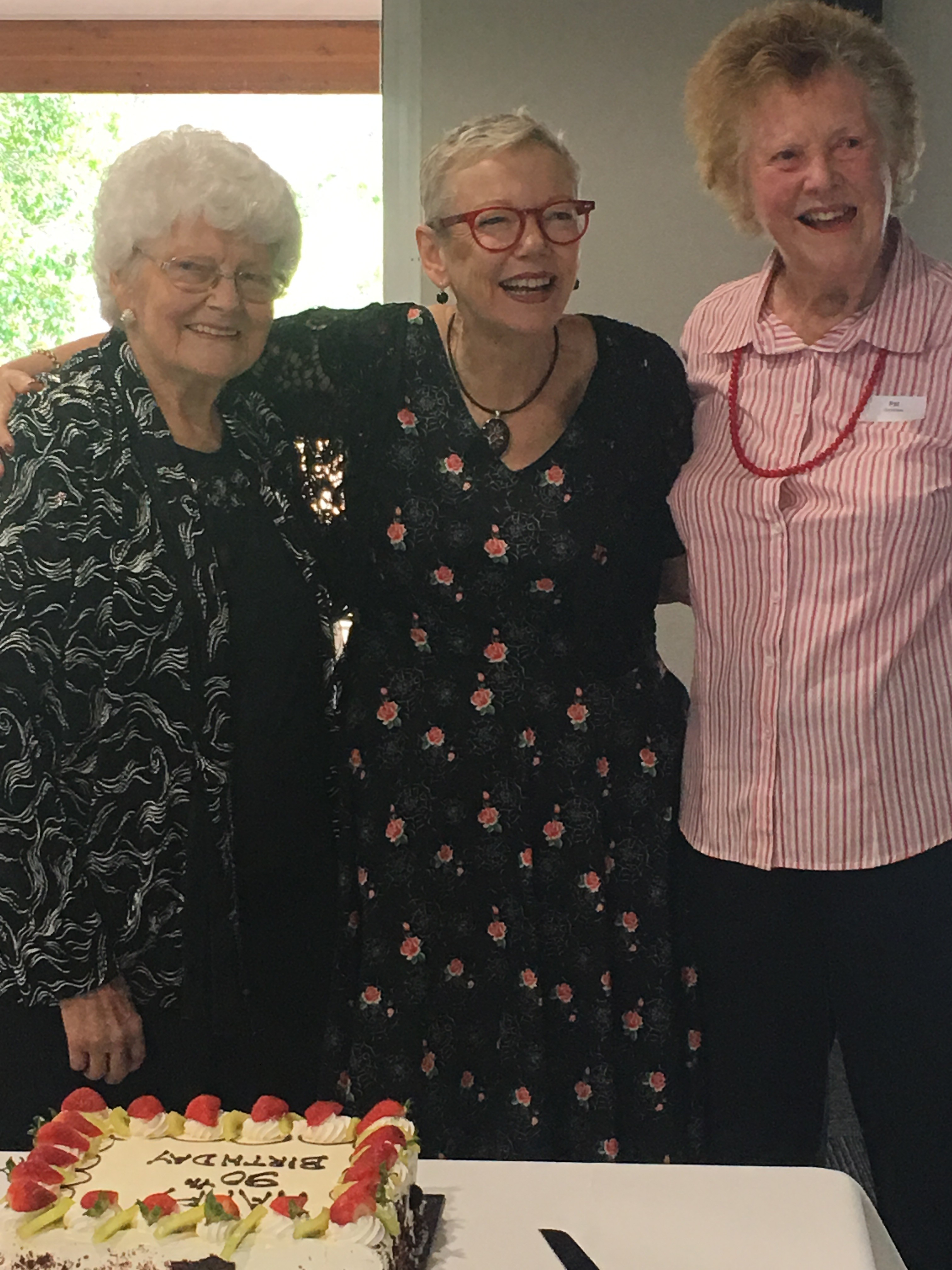Peter and Pat Edwards were busy retirees. They caught up with others daily, Mr Edwards attended the gym, they ran errands and attended church gatherings. “And now, nothing,” says Mrs Edwards, of St Paul’s Anglican Church, Wahroonga. Thanks to COVID-19, “It’s all just a blank”.
This experience represents the way many older members of our churches feel. The pandemic has been unsettling, as they adapt routines to socially isolate and shift to online processes.
“Our world has shrunk physically – we feel shut in,” Mrs Edwards says. “We sit on our balcony looking out and wondering what is happening. But I can’t get out there. We are now relying on technology, but sometimes I feel bombarded. Things keep bing-ing and ringing. I’m more frazzled, more easily irritated and upset. There is paranoia. Have I washed my hands enough?”
"Our world has shrunk physically - we feel shut in"
Mrs Jennie Everist, the pastoral care minister at St Luke’s, Miranda, says, “The important thing when seeking to care for older members of your church is to imagine what life is like for them now.
Jennie Everist says Covid-19 is the last of many small losses. Note: this birthday party took place before social distancing was enforced.
“They may have downsized and left their homes. There is grief about losing their garden, their neighbours. Even down to ‘My doctor has died and my hairdresser doesn’t cut hair any more’. There’s lots of stuff in life that begins to take effect, [like] long-term illnesses. Our seniors have been told, ‘Look after yourselves, keep moving, have good nutrition’ and that’s all compromised now.” Now add COVID-19.
So, amid these life challenges, Mr and Mrs Edwards and Mrs Everist share eight ways we can actively seek to serve older, isolated saints in our local church.
1 Empathise
Mr Edwards says a bit of empathy goes a long way. “Try to understand how we feel,” he says. “When I was in my twenties, it was difficult to empathise with what my friends' parents thought about things. But one just has to be genuine.”
2 Communicate sensitively and respectfully.
“On a practical level, speak slowly and clearly,” Mr Edwards advises. “Don’t use too much jargon or colloquial language. Be respectful. Chatting to us like we are your 20-year-old mates is not respectful because we’re not. It’s very difficult to learn to use conservative language without trying to be formal, but that’s just the way we were brought up. In our childhood days, we always referred to seniors as Mr and Mrs, never by their first names. Younger people need to remember these things.”
Mrs Edwards adds: “Be careful with humour. We’re slow, but we do have a sense of humour! But sometimes other people’s jokes can come across as flippant.”
3 Be patient and flexible
Mrs Everist says a patient and flexible approach with the elderly is best – to understand their needs and not push them further out of their comfort zone. We have to be creative and work with people to help.
4 Use their language
“Listen and communicate in the language a person uses,” Mrs Everist says. “Older people won’t necessarily be online or in a Zoom room, although some are. Learn their preferred communication style, starting with telephone calls and writing letters. I’ve asked people in our youth service to write a card every week to an older member of our church.”
5 Offer technical support
“If younger people can be a ‘help desk’, that is a wonderful way to serve,” Mrs Everist says. “I helped one person do their online shopping, and another set up online banking. If you can help people in that way, do so.”
6 Recommend books
“Getting resources is a great thing, especially if this thing does go on for six more months,” Mrs Everist says. Ordering books online and dropping resources off, especially Christian ones, can be a great help when older people can’t go out.
7 Fix their eyes on God’s word
“Give someone a call, have a chit-chat, and then ask ‘How are you going?’” Mrs Edwards says. “Try and turn their thoughts to God. A lot of people are more receptive to God than ever before.”
Adds Mrs Everist: “Swap your favourite Bible verse with another older Christian. Say to a person of faith a verse you have found encouraging this week. Share what has given you courage or strength. Ask them what they found encouraging as well.”
8 Pray for and with them
Mrs Everist: “Don’t assume you know what is on their mind. They might be worried about their neighbour who doesn’t know Jesus. We ask and then, if we feel the space is okay, ask if you can pray for them right now over the phone, The important thing is to listen and respond to what is said.
“If the vibe is right, ask them to pray for you, too. Saying something like, ‘Would you mind praying for me about my exams?’ or ‘I don’t know where God would have me serve next, can you pray for that?’. When I’m watching my older saints share prayer and their favourite verses with their younger brothers and sisters, it’s a great thing to see.”
This information was originally presented at an MTS webinar on April 3.























